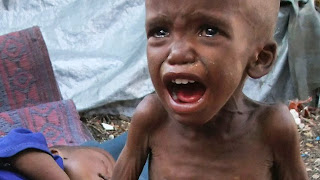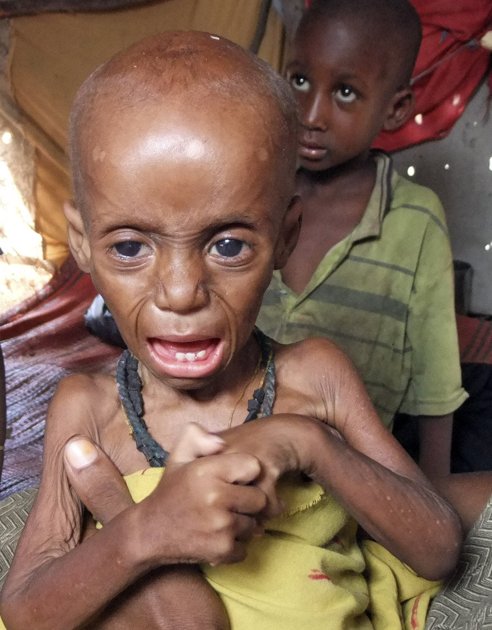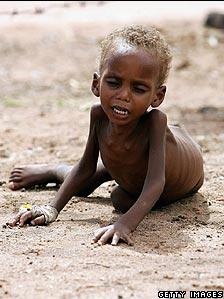Steve Jobs was amazing. He was an inspiration. The change-maker of the 21st century right alongside Albert Einstein.. the “Apple” he founded was just as important to modern society as the apple that made Isaac Newton understand the laws of gravity. You dont need to have owned an Ipod, Iphone, Ipad or Mac to be inspired by him and the world is right about weeping about the loss of this radical thinker, innovator and genius..
But in a familiar landscape, FIVE people are dying every second. 30,000 children have died in the past three months. This is NOT by an atom bomb or a super-bug as in the wildly popular movie- Contagion.. Its by FAMINE..the F- Word that is an insult to humanity since the world was more than capable of feeding every single man, woman and child who had died in the past few months.
The UN says tens of thousands of people have died after what is said to be East Africa’s worst drought for 60 years. It has officially declared SIX famine zones – mostly in parts of southern Somalia controlled by the Islamist al-Shabab.
Some 12 million people across the region need food aid. The rate of malnutrition [among children] in Bay region is 58%. This is a record rate of acute malnutrition and is almost double the rate at which a famine is declared. According to the UN’s Food Security and Nutrition Analysis Unit (FSNAU) 4 million people are in crisis in Somalia, with 750,000 people at risk of death in the coming four months in the absence of adequate response. Half of those who have already died are children.
Neighboring Djibouti, Eritrea, Ethiopia, Kenya and Uganda have also been affected by the severe lack of rain. The cause- global warming.. But its pointless to talk of the cause now.
The UN has estimated that $2.5bn in aid is needed for the humanitarian response to the ongoing crisis in the Horn of Africa. As of 10 October, the funding shortfall stands at $615m.
So, Changemaker, can we do anything about it? Maybe we’ll never raise $2.5 billion, but we CAN raise awareness and do what we do best to help out Africa. As Africa’s jewel, our beloved Wangari Maathai showed from her story of the hummingbird trying to save the burning forest, we should do the best we can..
Some suggestions as to what we can do are small community based donation programmes. Its extremely easy to donate to the UN food programme and every cent will count. Also, most countries throw away tons of food due to over stocking that end up in land fills. That food can save lives. For most of us, its hard to even miss a meal so just imagine how painful and unfortunate a person has to be to die of hunger? No one deserves that..
Others will follow. Lets show the world what Changemakers can do together in the worst Famine in recorded History.
BE THE CHANGE YOU WANT TO SEE





















































